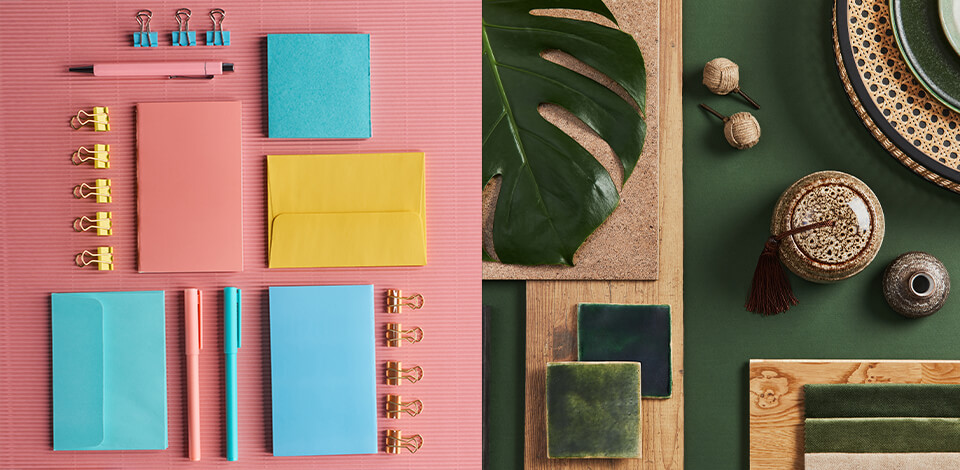
Flat Lay is generally used in product photography because it lets you visualize the product itself and the associative area around it. The best flat lay photo ideas are usually taken from above, which is why the shot looks dimensional and multi-faceted.

One of the most basic flat lay photo ideas resides in keeping a single-color scheme in the image. Brown or beige nude shades are the best for this.
You can create a cozy atmosphere in the picture by adding a book or a cup of coffee with a book. And to liven up the image, add a knitted item like a sweater or a scarf.

A furry background always looks good in a photo when the subject calls for it. With a camera for product photography, you can choose the right focal length and take a harmonious picture. It is best to use light colors of plaid to favorably shade the other inventory.
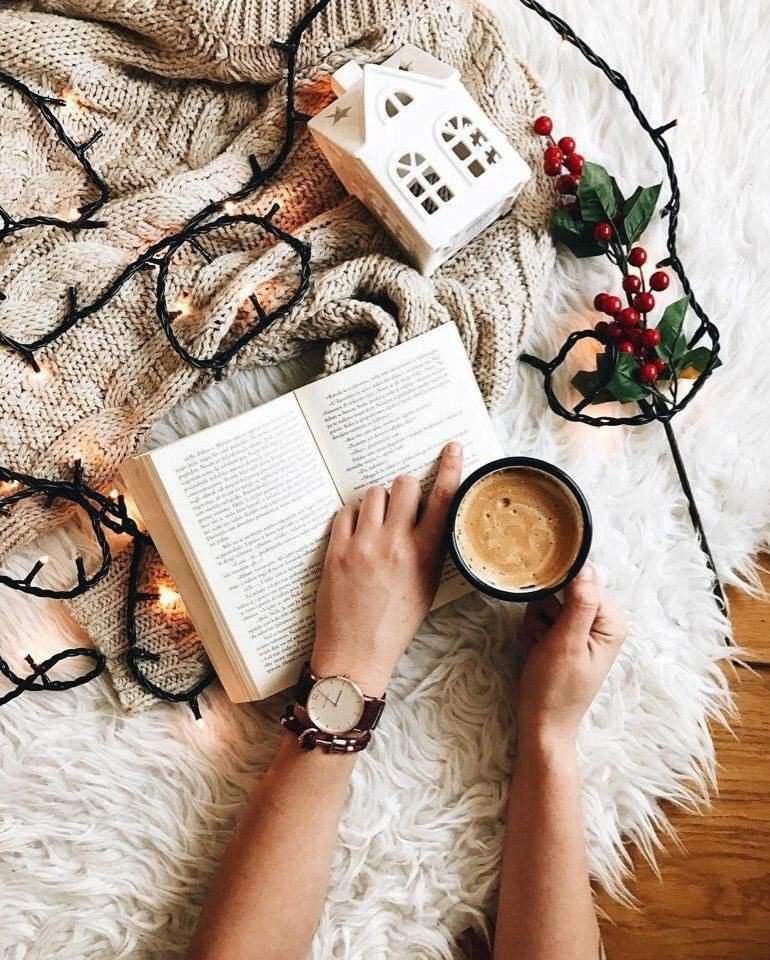
Add your usual household paraphernalia to the photo, a fluffy blanket, and expose the light source diagonally to give the right light and shade pattern. If you decide to use garlands, don’t light them too brightly so as not to deflect attention.
Circular shapes are always responsible for harmony in a photo. So, by combining circles of different diameters according to the rule of thirds, you get an incredibly harmonious composition in the picture.
In addition, you can use a contrasting background and bright color accents, such as pink, to draw attention to particular objects.
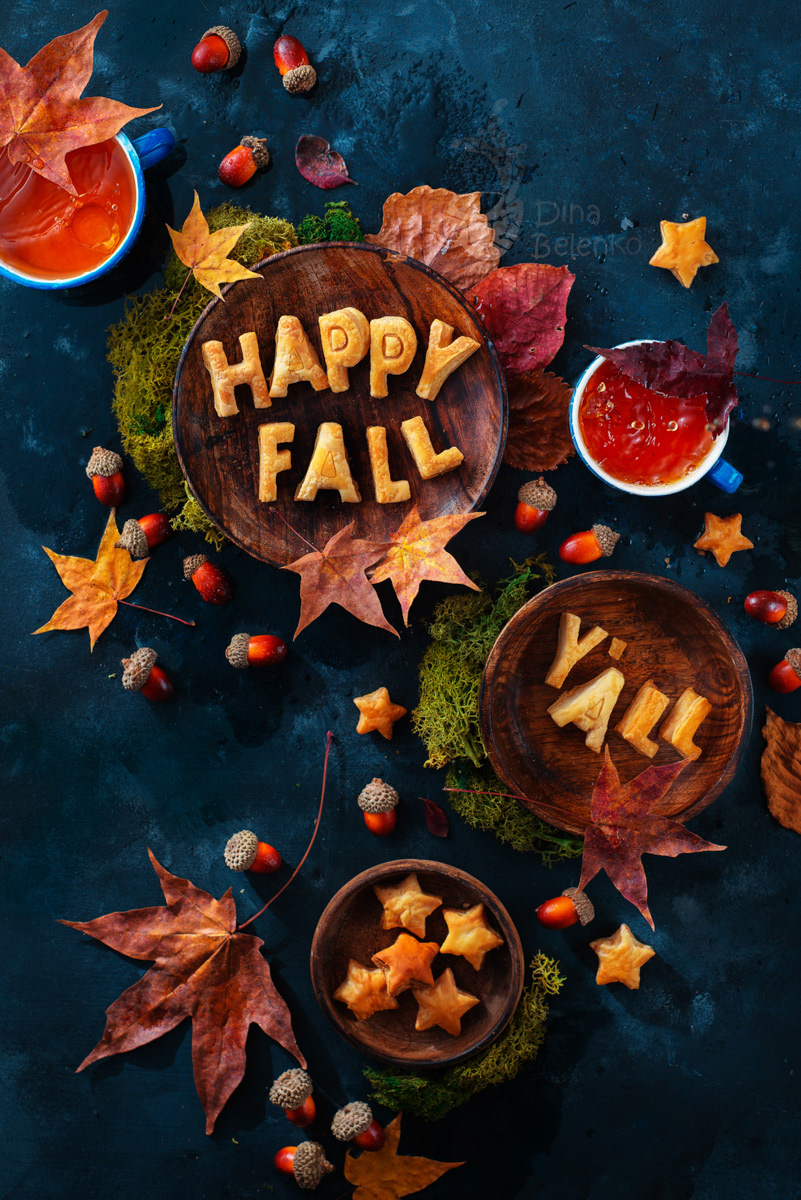
Seasonality works in almost any photo format, and flat lay photography lets any season be represented in all its colors.
For the fall example, you'll need autumnal attributes, such as dried leaves or flowers, pumpkins, or other vegetables, to which you can add the lettering of cookies or cut-out vegetables. Give preference to complementary colors to get a frame that catches the eye.

If you don’t know how to capture a painting or other handmade work beautifully, this is one of the best inputs for creative photography ideas. Adding to the shot a hand directly performing the action gives the impression of a first-person perspective.

Surround the leading figure in the picture with additional elements. It looks intriguing when they run out/bleed, so the viewer has to complete the shot himself.
Experiment with shadow photography to get unusual shimmers and shadows in the frame. Don’t be afraid of harsh shadows but accentuate them with transparent dishes, through which a new and fascinating pattern will bounce in the background.
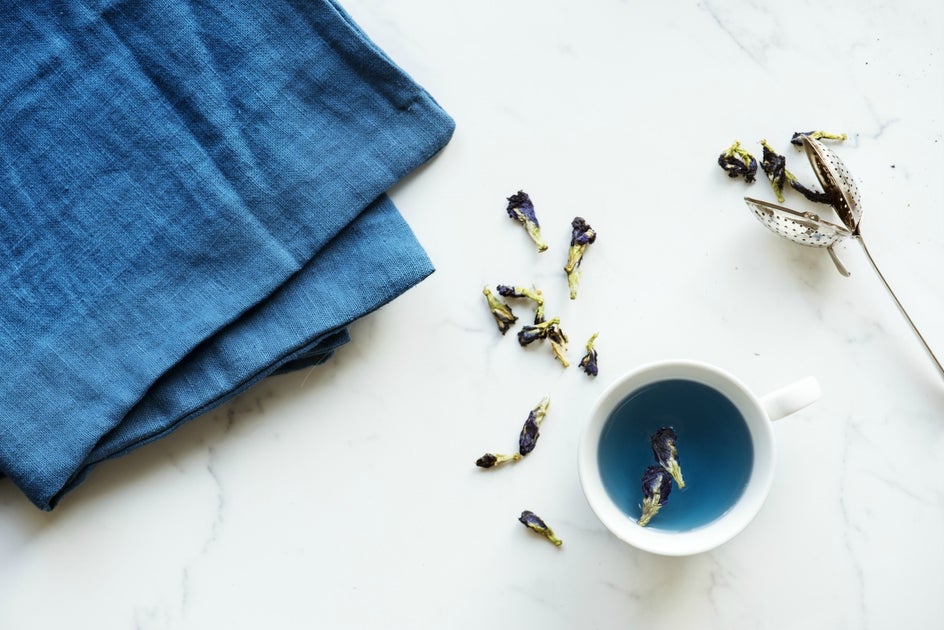
To recreate a minimalist shot, you will need a professional lens for product photography and two contrasting shades. It’s a good idea to accentuate the geometry of the frame. So, the fabric on the run out of the frame can be a massive part of it while not being considered the main subject when the cup of tea will be less detailed.

Bokeh photography can be challenging, but the results are worth your effort. For Bokeh, use a garland on different focal lengths.
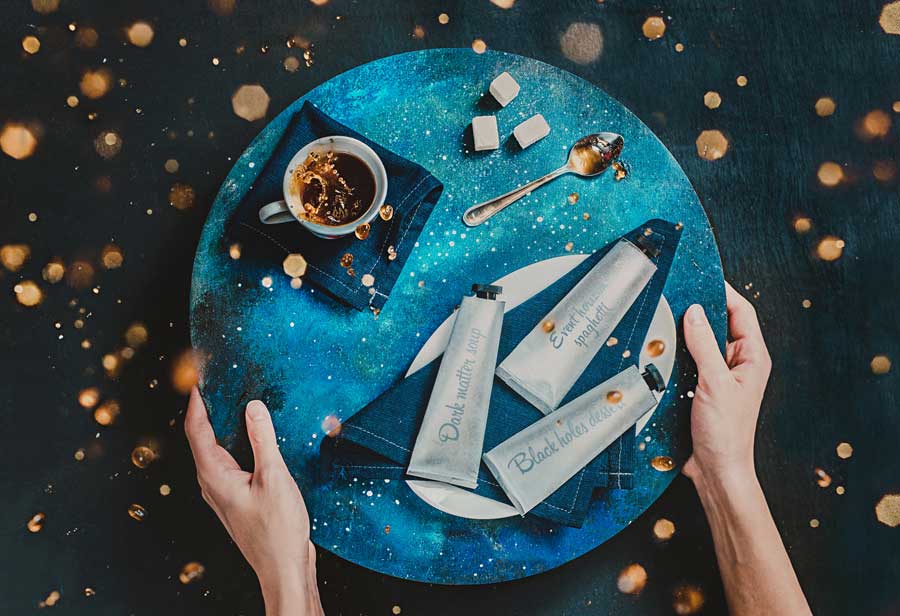
Experiment with the size and number of lights in the photo. You will see that the image will look magical. So, if you want to create a very striking bokeh effect, invest in a fast lens. By the way, you can use bokeh to cover a blank spot in a flat image that you didn’t know what to cover with it.

The wooden background and additional accessories like a cutting board fully reflect the naturalness and connection with nature. A shot with wood is perceived as lively and fresh from the start.
An excellent idea is to put some greenery in the corner and choose a contrasting element like tangerines.

This shooting type in clothing photography does not require an elaborate background, model, or pose. It is enough to choose an interesting multi-component image so that the frame is not empty and the clothes are folded neatly.

You can put all the clothes in the frame or leave part of the hat outside. You can also do layering, where one garment overlaps another one to unify everything into a single composition.

Just set up your camera on a small camera tripod and move objects around in the image as long as you get the desired result. Advanced photographers boldly vary the food photography angles adding different product shapes and associations.

In this photo, for example, a bright y12. Create a Breakfast Compositionellow lemon takes center stage while surrounded by chaotically scattered slices of fresh and dried lemons in a less bright hue, as well as the foods with which it is often consumed — honey and cinnamon.

Another option for how to apply food in the flat lay is to thematize it. For example, you can put together the perfect breakfast for a family with lots of foods that are mostly taken for breakfast. The frame will be rich in color if you take some foods apart, such as cutting an egg or breaking toast into its components.

Your breakfast could be as minimalistic as the one in this tabletop photography. For a romantic breakfast for two, you do not need a lot of products, for example, only oatmeal and fruit.
Don’t forget to pack aesthetic kitchen utensils, spoons, honey dippers, plates, etc.

Take a map as a background for your shot and lay out the attributes of the trip on it, such as camera, compass, and photo cards. Try to make the attributes in contrast to the background, but at the same time monochrome, so they don’t come out blatantly.

Make up product photography is often shot in flat lays, as this looks good in ads and magazines. Choose your central product and place it higher, for instance, on a magazine, and put the rest of the beauty paraphernalia on the table. Everything is possible, a comb, candles, flowers, cream tubes, or jars.

You can put your arm and even half of your upper body in the picture. Thereby, the viewer will see the shot through your eyes. If you are taking pictures of yourself, you will probably need a camera remote controller. This way, you can photograph your shoes or clothes surrounded by fabrics and dried flowers.
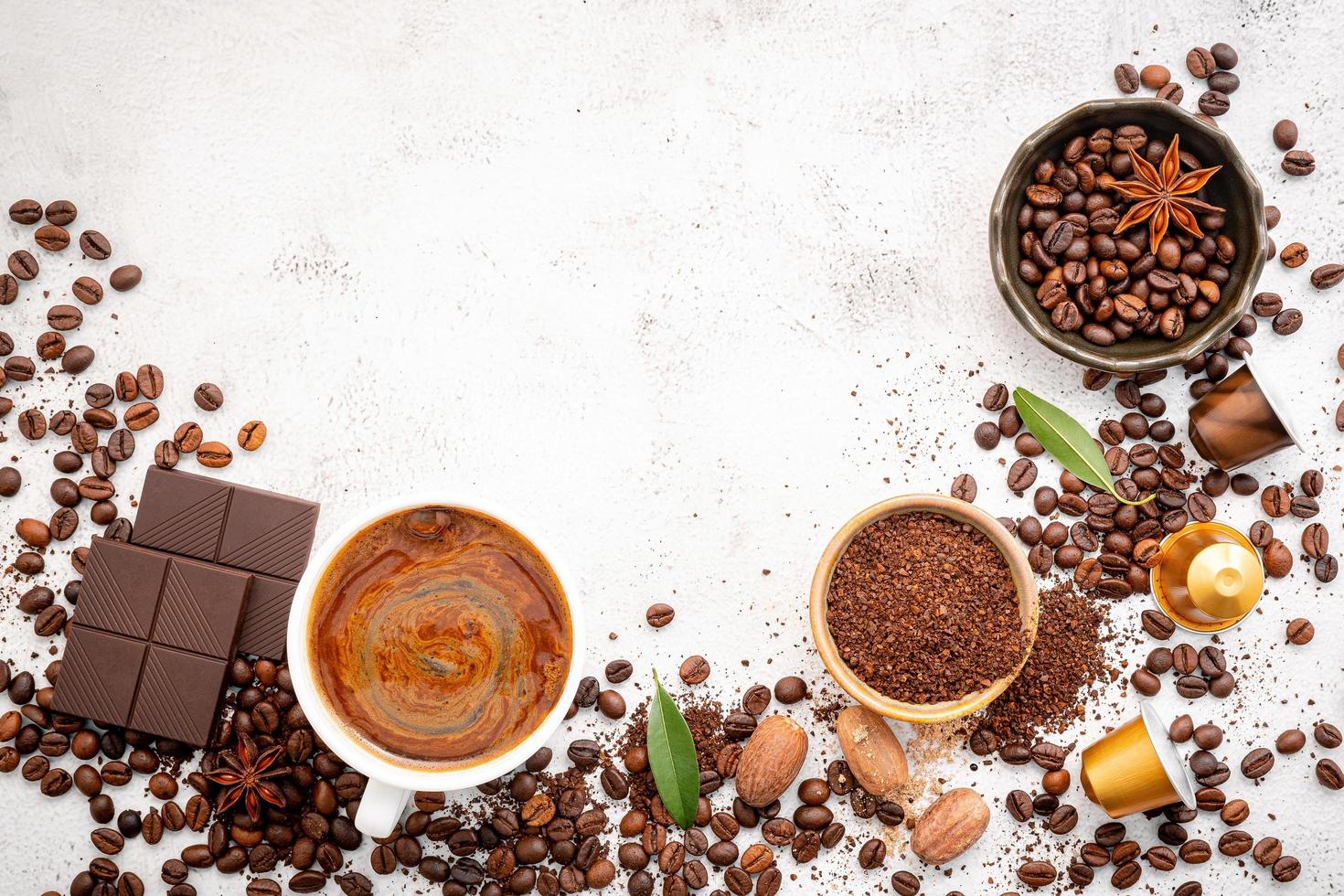
The flat lay format also lends itself to coffee photography. You don’t even need a lot of details for that, just a cup of coffee and some coffee beans scattered on the table.

But of course, the frame will be more even if it is balanced on all sides, such as by flowers, candles, or pinecones, and, needless to say, if the harmony of colors is maintained.
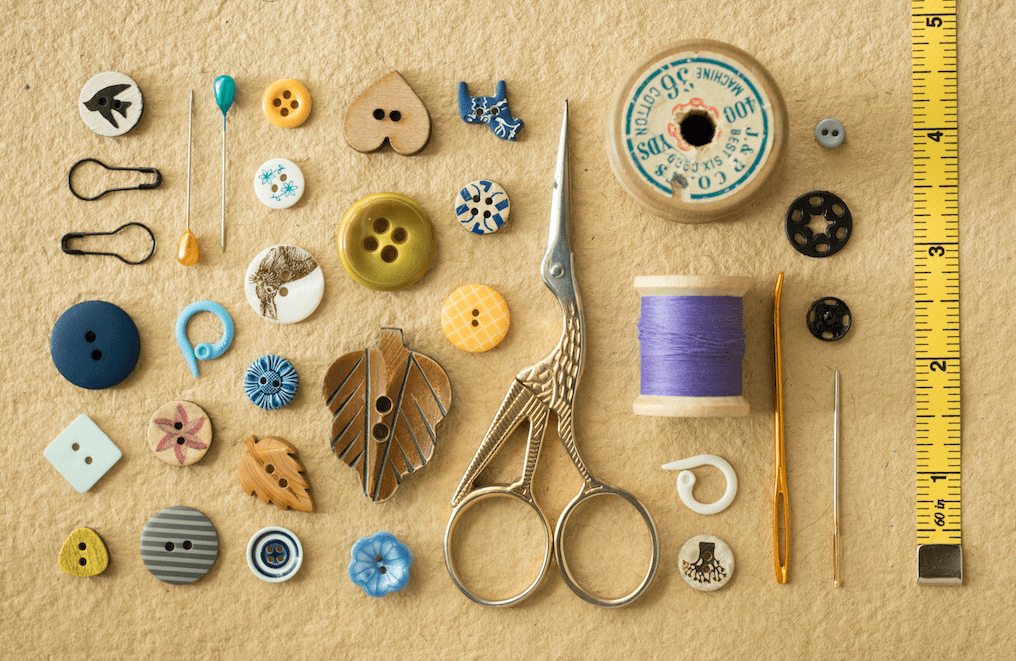
This could be embroidery or sewing, or photography, for example. The point is to follow some product photography tips and your elementary working tools to tell what you do.
Fill the entire frame with them, and make sure you’ve balanced colors and sizes. Avoid too many colorful and large pieces. And it’s crucial not to try to get everything geometrically precise but to experiment to find your perfect shot.

Flat lay wedding photography ideas help to convey the romantic mood and capture the details of the process for the young couple that will last a lifetime. You will need some decorations, such as flowers or ribbons from the venue, rings, and anything that might remind you of the wedding, even the groom’s bow tie.
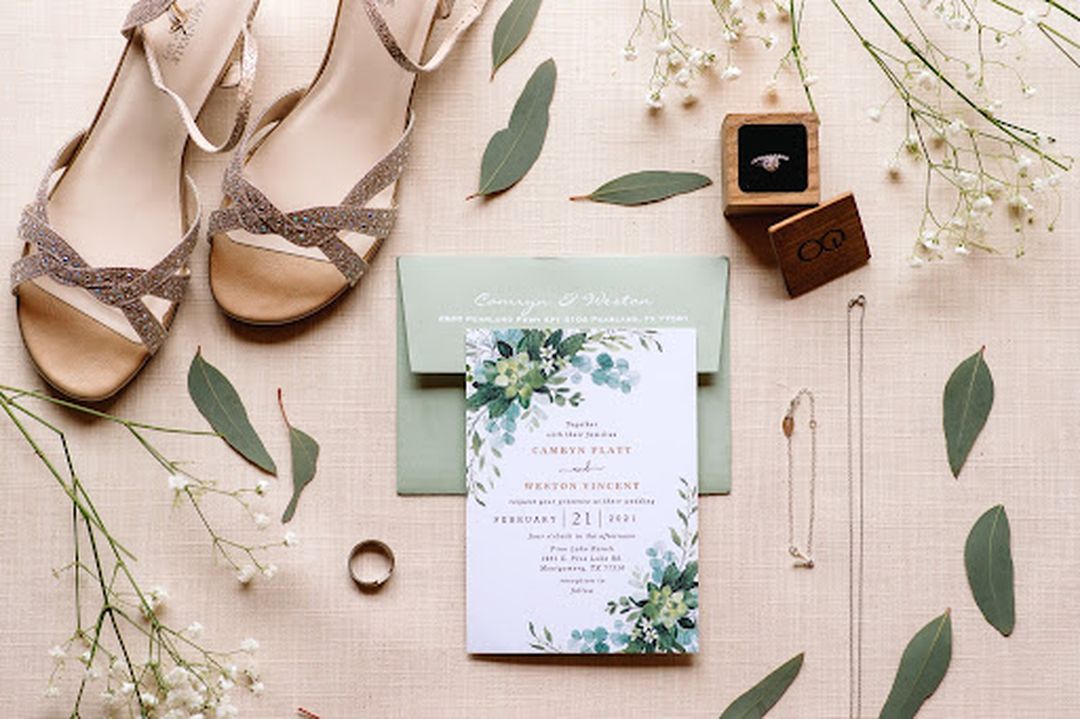
To vary the frame, try photographing the bride’s morning by putting in the frame, for example, shoes, rings, invitations that can be created with simple invitation design software, and accessories for hair or makeup.
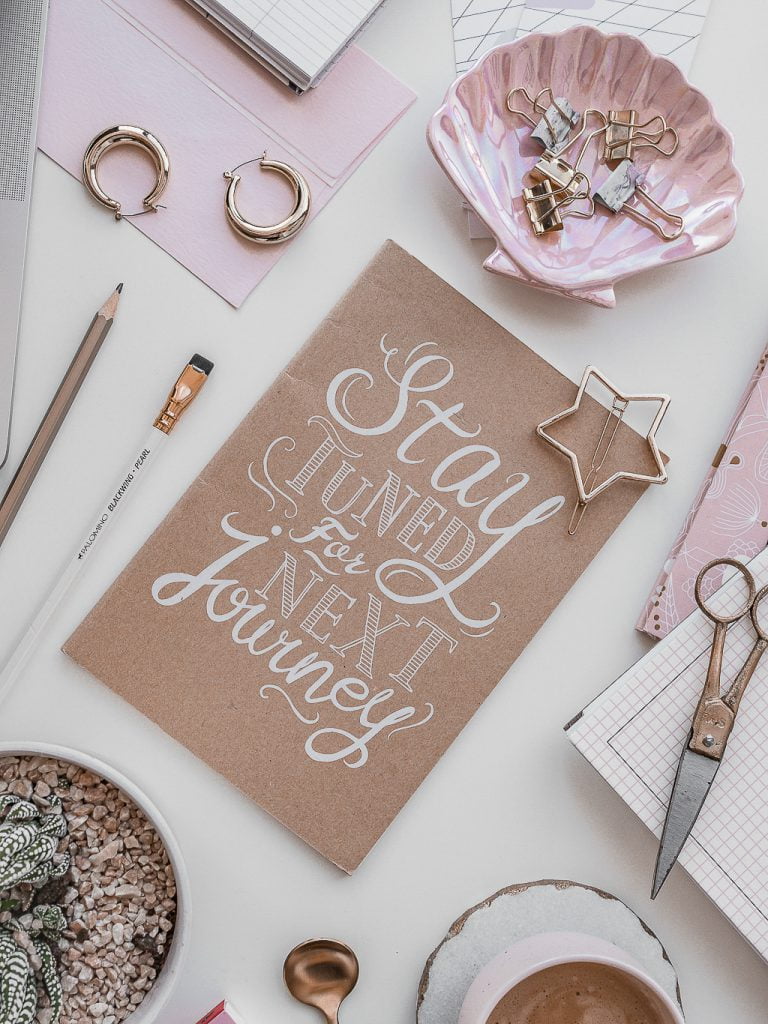
Write a motivational saying on a piece of paper and make it the star of your shot. For instance, you can use a plain piece of paper and a pen, but it’s better if you get creative and write the saying on kraft paper or a blackboard with a white paint pan.

Patterns are a popular technique, often created with Photoshop. But you don’t have to resort to machine processing if you can make such a flower pattern yourself. Use different states of the flower: when it is still in a closed bud, when it is fully open and when its leaves have already fallen off.
The attraction lies in the disproportionality. It means that not all parts are geometrically correct and have uniformly recurring angles, but it is as natural as possible.

Be sure to leave enough negative space so that there is air in the image. Keep small stationery closer to the center and place large items like notebooks and keyboards in the corners to balance the space. You can photograph everything under your arm right on your desk.

Use the trick that makes your flatlay idea look like levitation photography. Place your objects, say, food, desserts, and cookies, on a sheet of clear plastic and place them a small distance from the colored background.
All the shadows created by the volume of the objects will stay in place, but all the shadows that fall on the background will disappear. Your composition will look like it is levitating.